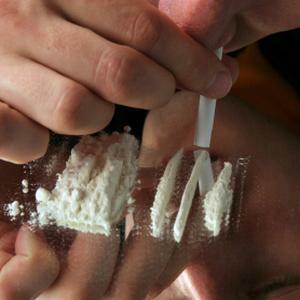
Researchers believed this was because blood vessels contracted after a person sniffed cocaine. But new research has now demonstrated that blood vessels also expand in an effort to reduce skyrocketing blood pressure. This makes the heart beat too rapidly, and the body's efforts to counteract the rapid blood pressure spike fail.
Cocaine users can easily die
The findings may help scientists develop new drugs to treat cocaine abusers who land in emergency rooms, according to the study's co-author, Dr Meryem Tuncel, a researcher at the University of Texas Southwestern Medical Centre.
"I don't think the public is very aware that they can die suddenly from cocaine because of increases in blood pressure," Tuncel said. "They should know that they can die easily."
Cocaine reportedly causes more deaths than any other illegal drug, and it's estimated to be responsible for 30 percent of all drug-related visits to emergency rooms in the United States.
Read more on cocaine facts.
What happens to the body
Researchers have estimated that the risk of a heart attack jumps by 24 times in the hour after a person uses cocaine.
Doctors have long known that cocaine causes heart attack and stroke, especially in regular users, said Ronald Herning, a research psychologist with the National Institute on Drug Abuse.
"It probably weakens blood vessels," he added. "The increasing heart rate and blood pressure wears them out."
Body protects itself from more damage
Experts thought that the effects of cocaine made blood vessels shrink, causing higher blood pressure, just as squeezing a garden hose causes water pressure to rise. But they based their theories on tests done on animals, Tuncel said.
However, the researchers at the University of Texas gave doses of cocaine to 15 male volunteers who said they had never taken the drug before. The men received the drug through nasal drops and, separately, through injection in the arm.
The doses were "very small," Tuncel said. "There's no euphoric effect. We cannot give larger doses because of ethical reasons."
The blood vessels did constrict in the men who received cocaine through injection into the blood stream. But when they received cocaine through the nose, the blood vessels actually became larger, allowing more blood through.
Enlarged blood vessels would normally cause lower blood pressure. But the researchers suspect that rapid heartbeats kept blood pressure high, much like turning up a faucet increases water pressure in that garden hose.
"The important mechanism is what's happening in the brain," Tuncel said. "The brain is telling the heart to pump harder."
The body's reaction to the negative effects of cocaine actually prevents the drug from doing more damage, according to Dr Murray Mittleman of the Institute for Prevention of Cardiovascular Disease at Beth Israel Deaconess Medical Centre in Boston.
"Without (the expansion of blood vessels), we'd see much worse consequences than what we already see," Mittleman said.
Tuncel and Mittleman agreed that the findings, which appear in this week's issue of the journal Circulation, may lead to better treatments for cocaine users who suffer from heart problems.




 Publications
Publications
 Partners
Partners









